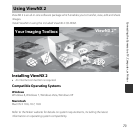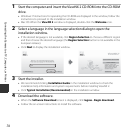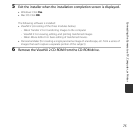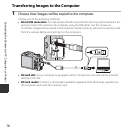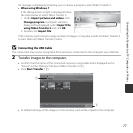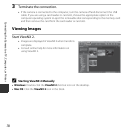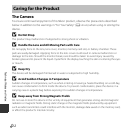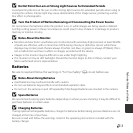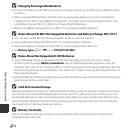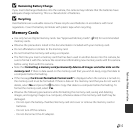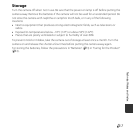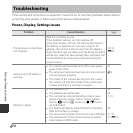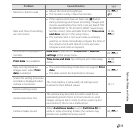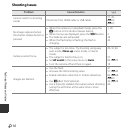
F3
Technical Notes and Index
B Do Not Point the Lens at Strong Light Sources for Extended Periods
Avoid pointing the lens at the sun or other strong light sources for extended periods when using or
storing the camera. Intense light may cause deterioration of the image sensor, producing a white
blur effect in photographs.
B Turn the Product off Before Removing or Disconnecting the Power Source
Do not remove the batteries while the product is on, or while images are being saved or deleted.
Forcibly cutting power in these circumstances could result in loss of data or in damage to product
memory or internal circuitry.
B Notes About the Monitor
• Monitors and electronic viewfinders are constructed with extremely high precision; at least 99.99%
of pixels are effective, with no more than 0.01% being missing or defective. Hence while these
displays may contain pixels that are always lit (white, red, blue, or green) or always off (black), this is
not a malfunction and has no effect on images recorded with the device.
• Images in the monitor may be difficult to see under bright lighting.
• The monitor is lit by an LED backlight. Should the monitor begin to dim or flicker, contact your
Nikon-authorized service representative.
Batteries
Be sure to read and follow the warnings in “For Your Safety” (Aviii-xiv) before use.
B Notes About Using Batteries
• Used batteries may overheat. Handle with caution.
• Do not use batteries beyond their recommended expiration date.
• Do not turn the camera on and off repeatedly if discharged batteries are inserted in the camera.
B Spare Batteries
We recommend carrying spare batteries depending on where you are shooting. It may be difficult to
purchase batteries in certain areas.
B Charging Batteries
If using optional rechargeable batteries, charge the batteries before taking pictures. Batteries are not
charged at the time of purchase.
Be sure to read and follow the warnings noted in the operating instructions included with the
battery charger.



